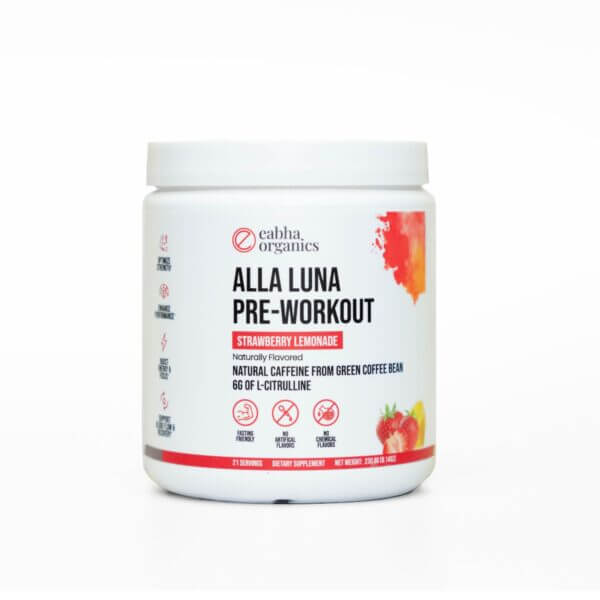1 in 3 adults does not get enough sleep. From stress to distractions, poor sleep routines, blue light disruptors, and more; our sleep has been put on the back burner!
While there’s lots of debate regarding the amount of time the average person needs to sleep per night, it’s safe to say this number greatly depends on each person and their needs. As a rule of thumb, the American Academy of Sleep Medicine recommends that adults between the ages of 18-60 should sleep at least 7 hours per night for optimal health. Are you getting enough rest?
Understanding Your Sleep Cycle
Why is sleep so important? Sleep is an essential function our body needs for true health, it’s our body’s time to restore and recharge. Sleep helps our brain function, keeps us emotionally stable, and is vital to heart health, among many other functions. Getting good quality rest can help fight off disease and keep your body healthy.
Our sleep cycles happen in stages. Each sleep cycle consists of four stages: the first three stages are Non-Rapid Eye Movement (NREM) sleep and the final stage is Rapid Eye Movement (REM) sleep. Essentially, these stages represent our bodies’ progression into deeper sleep and restoration. The important part to understand is that each sleep cycle averages 90 minutes and each night you go to bed, you should experience 4-6 sleep cycles (that’s 6-9 hours of sleep!).
For a more in-depth understanding of your sleep cycle, learn more here.
Long-term symptoms of sleep deprivation include:
-
- Obesity
- Diabetes
- High blood pressure
- Heart attack
- Stroke
- Poor brain function
- Immunodeficiency
- Depression
- Anxiety
Not prioritizing your sleep quantity and quality can have long-lasting impacts. Let’s fix our night time routine and get back to feeling our best!
Fix Your Sleep Cycle
New research from the CDC estimates more than a third of Americans are not getting enough sleep. As a result, approximately 9 million Americans take prescription sleeping pills.
Let’s talk about how to boost your sleep naturally:
1. Increase Your Sun Exposure
Sun exposure has many benefits, including improving our sleep! Getting enough sunlight throughout the day supports our body’s natural circadian rhythm. Our circadian rhythm helps regulate our hormones, including melatonin levels. This key sleep hormone is responsible for signaling to our body it’s time for bed. When we get sunshine throughout the day, our bodies become more efficient in signaling melatonin levels to rise at night to help fall asleep.
Remember, this type of sun exposure does not need to be on our skin! Melatonin is greatly influenced by the retina in our eyes. So, simply exposing our eyes to sunlight outdoors can get the job done. Try incorporating more sun exposure each day by eating lunch outdoors, walking, and opening the windows in your house to sleep more soundly at night!
2. Exercise Regularly
Exercise is another great tool for regulating our circadian rhythm. When we exercise, we boost our endorphins, reducing cortisol levels, which in turn reduces stress and tension. Reducing stress and anxiety, expending pent-up energy, and tiring our bodies out, make us adept to experience higher-quality sleep. Essentially, we sleep longer and experience deeper, recovery-focused rest.
Try exercising 2-4 days a week. Focus on getting your heart rate up to experience your endorphins doing their magic. Pick exercises you enjoy like swimming, running, pilates, or even weight-lifting!
3. Limit Screen Time
Screen time means more exposure to blue light, a recipe for poor sleep! Blue light has been shown to deregulate our circadian rhythm and affect our body’s ability to signal melatonin to rise. Without this important signal, it becomes difficult for our bodies to know it’s time to fall asleep.
Limit your screen time with iPhones, iPads, and computers before bed. Overall, we shouldn’t be getting more than 2 hours of blue light exposure per day; however, depending on your job, or other factors, this can be unrealistic. Invest in a good-quality pair of blue light glasses to protect your eyes and avoid screen time 1-2 hours before bed to fall asleep naturally!
4. Try Key Supplements
Supplements are useful when trying to sleep naturally! Experimenting with ingredients like Magnesium, Ashwagandha, and melatonin can be useful.
Magnesium is a nutrient essential for more than 300 processes in our body, this mineral can help us feel more relaxed by calming down our central nervous system and promoting more healthy, restful sleep.
Ashwagandha is an adaptogenic herb that has been used for centuries to treat many conditions. This herb has a calming effect, reducing anxiety and stress, to help us fall asleep more easily!
Melatonin is a hormone our bodies produce in response to darkness. This hormone is produced naturally by our pineal gland and helps regulate our sleep cycle by alerting our bodies that it’s time for bed. Due to technology, light from screens and bulbs can confuse our bodies, inhibiting the production of melatonin. A melatonin supplement can be extremely useful to let our body know it’s officially lights out!

Want to know more about the right supplements? Read more in our blog: How Are People Using Hormone Balance Supplements
5. Create a Nightly Routine
It’s important to get our body into a routine when it comes to bedtime. Going to sleep at the same time every night and waking up at the same time every morning helps our body get into a natural rhythm! Our circadian rhythm is vital to all the processes in our body. Regulating our circadian rhythm in turn regulates key hormones, like cortisol and melatonin. When our cortisol and melatonin secretion is optimal, we are much less stressed and better equipped to get a solid night’s sleep.
Enjoy Feeling More Rested!
To sleep better naturally, try applying these tips to see an overall improvement in your well-being! To assess your body’s needs, experiment with 7 hours of sleep per night to see if this improves your mental function, mood, and fatigue. If you notice 7 hours still leaves you feeling subpar, push for 9 hours of sleep to see greater improvement!
If you have any questions on this interesting topic, please feel free to reach out to us.











12 Responses